The SBA maintains contact with the employment guidance centre of the University and regularly forwards job offers to graduates. The SBA continues to provide facilities and services to assist students in employment at the end of their studies, and such services contribute to teaching and learning.
1. Career Development Support
The University has a career service centre, which comprehensively provides students with abundant career development opportunities, including innovation training projects, entrepreneurship training projects, entrepreneurial practice projects, and career camps. Outstanding students are selected to join career competitions on and outside campus, receive rewards, and gain practical abilities.
The career development centre of the SBA works closely with the employment guidance centre of the University and has posted links on the School website including 'career development assessment', 'pre-career academy', 'employment and entrepreneurship class', 'China college students employment service platform', and 'employment and entrepreneurship research'. The 'career development' column on the website regularly posts job offers, career psychological counselling, workplace guidance, and so forth.
'Meet at the workplace' is an employment guidance series created by the SBA in 2010. In 2013, the series entered the 'Jishi Cup' project organised by the University. Subsequently, the series has consistently won funding from the Employment Guidance Centre. The main activities of the series include career development competitions. A list of recent 'Meet at the workplace' activities held by the SBA is shown in Table 1. In the last few years, the School has organised 60 'Master Job Hunter' activities. Experts from within and outside the University are invited to deliver lectures on CV writing, job interview skills, job market and industry trends, and so forth.
Table 1 The List of the ‘Meet at the workplace' Activities
Date | Events |
2024.4 | 14th edition of ‘Meet at the workplace’ – ‘courage in workplace’ elite challenge |
2023.10 | ‘Meet at the workplace’ – Lecture on applying knowledge in the workplace |
2023.11 | ‘Meet at the workplace’ – professional elite business planning competition |
2023.4 | 13th edition of ‘Meet at the workplace’ – ‘courage in workplace’ elite challenge |
2022.10 | ‘Meet at the workplace’ – Lecture on upward career track |
2022.5 | ‘Meet at the workplace’ – Lecture on diversity in the workplace |
2022.5 | 12th edition of ‘Meet at the workplace’ – ‘courage in workplace’ elite challenge |
2021.11 | ‘Meet at the workplace’ – Lecture on future careers |
2021.4 | 11th edition of ‘Meet at the workplace’ - ‘courage in workplace’ elite challenge |
2. Highlights of Careers Data
Over the past three years, progress has been made primarily in the areas of the starting salary of graduates with a master's degree, the employment rate of female graduates (undergraduate programs), and admission to graduate schools.
(1) SBA Graduates' Employment Rates and Placement Analysis
The annual employment rate of the SBA was 77.36% for undergraduates and 92.27% for postgraduates over the past three years on average. Figure 1 and 2 presents the graduates' placement information by region from 2021-2023, and Figure 3 and 4 presents the graduates' placement information by industry from 2021-2023.
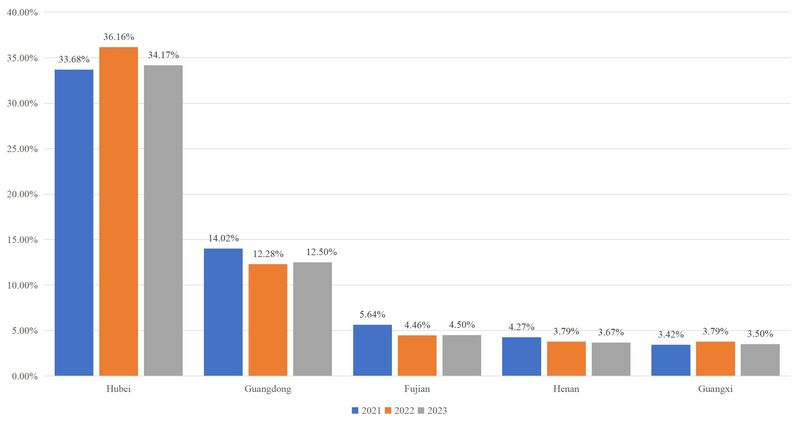
Figure 1 SBA Graduates Placement Information by Region (Undergraduate Programmes) 2021-2023
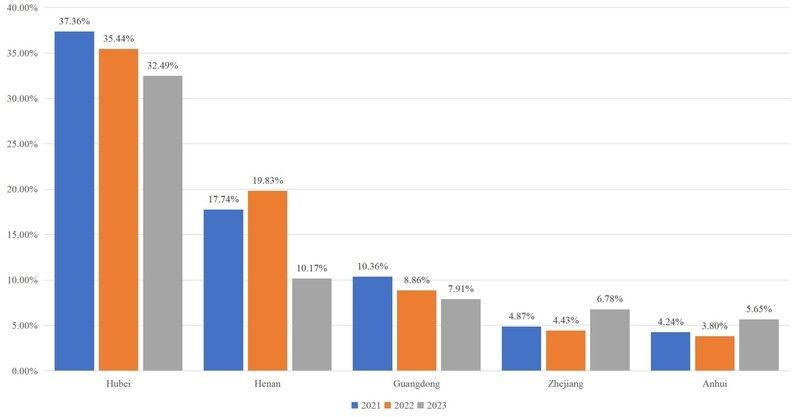
Figure 2 SBA Graduates Placement Information by Region (Postgraduate Programmes) 2021-2023
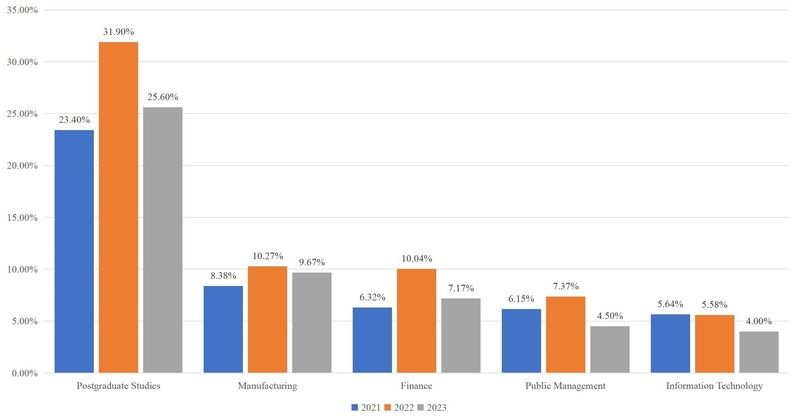
Figure 3 SBA Graduates Placement Information by Industry (Undergraduate Programmes) 2021-2023
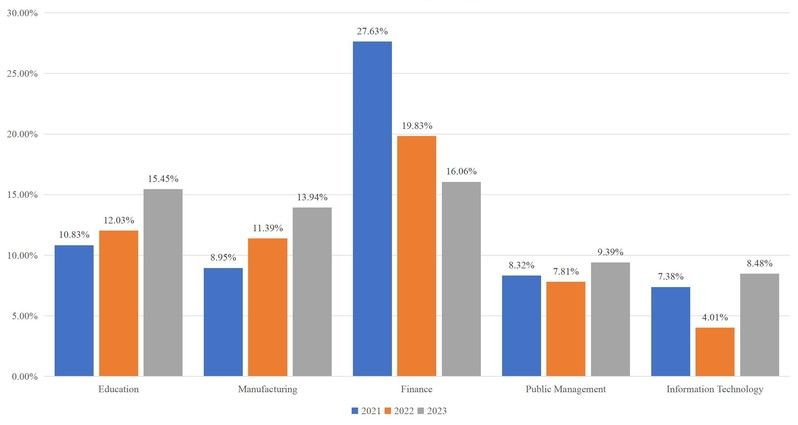
Figure 4 SBA Graduates Placement Information by Industry (Postgraduate Programmes) 2021-2023
For undergraduates, Hubei has consistently been the top region for employment, with percentages of 34.17% in 2023, 36.16% in 2022, and 33.68% in 2021. Guangdong follows closely, showing a slight decrease from 14.02% in 2021 to 12.5% in 2023. Guangxi has also been a frequent choice for undergraduates in recent years. The placement of SBA undergraduates reveals that Postgraduate Studies are the predominant choice, with 31.90% opting for further studies in 2022. The fields of Manufacturing and Finance also stand out, suggesting a broad spectrum of opportunities for SBA graduates. Information technology has consistently ranked fourth or fifth over the past three years as a choice for undergraduates.
In the postgraduate category, data for 2023 shows a shift in regional preferences, with Henan emerging as the top region at 10.17%, followed by Guangdong at 7.91%. Additionally, Zhejiang has consistently ranked among the top five choices for postgraduates over the past three years. The industry sector for postgraduates is dominated by Finance, which recorded a high percentage of 27.63% in 2021, indicating a strong demand for SBA graduates in this field. Education and Manufacturing also exhibit considerable percentages, suggesting a continued interest in these sectors. Public management and information technology have consistently been among the top five choices for postgraduates over the past three years.
Overall, the data highlights the dynamic nature of graduate employment, with regions such as Hubei and Guangdong being popular choices for undergraduates, while postgraduates appear to diversify their regional preferences. Industries such as Finance and Manufacturing are key areas for employment across both undergraduate and postgraduate levels, reflecting the versatility and adaptability of SBA graduates in the job market.
(2) Employment of Female Graduates
In 2021, the employment rate of female bachelor's graduates was 86.70%. The SBA established the Center for Women's Leadership and Career Development for University Students, which was the first in China to focus on student development and academic research regarding female university students' professional abilities, sense of social responsibility, innovation, and entrepreneurship.In 2022, a team led by Dr. Yingna Wu conducted a survey of female students and graduates of the SBA to receive feedback for improvement. In total, 183 respondents completed the survey. The results showed that 7% of the respondents felt disadvantaged as women when job hunting and mentioned the reason being a tendency for some employers to favour male candidates; however, half of these respondents agreed that training and preparation at school helped eliminate the employment barriers caused by gender.
3. Career Development Support
The SBA uses its unique advantages, social resources, and alumni resources to find job opportunities and build career development networks for students. Figure 5 shows the main career activities organised by the SBA.
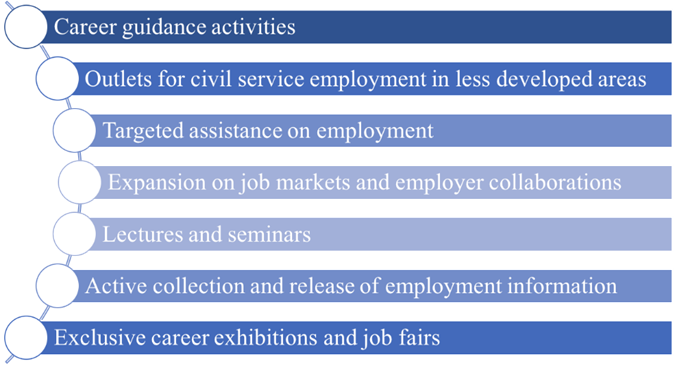
Figure 5 Career Services Provided by the SBA
Among these, SBA utilises nontraditional sources to provide targeted assistance to students in need. Active exploration and promotion of civil service employment and military opportunities are provided to suitable students. Moreover, social media platforms are utilised to gain more market attention, and the school continuously seeks collaborations with alumni enterprises to provide employment opportunities for graduates. The SBA encourages and supports the faculty in recruiting undergraduate and graduate students to become research assistants for those who have academic interests and relevant career aspirations. In recent years, employment in live-streaming platforms and businesses has been increasing, and the School has provided opportunities in these fields for graduates.
In recent years, companies in which alumni work have organised on-campus recruitments improved the pertinence and effectiveness of employment guidance and helped students establish appropriate career expectations. Job hunters are urged to align their specialised knowledge with job market demands. Graduates therefore have more employment opportunities. For an overview of some key employers who have hired SBA students, please refer to Figure 6.
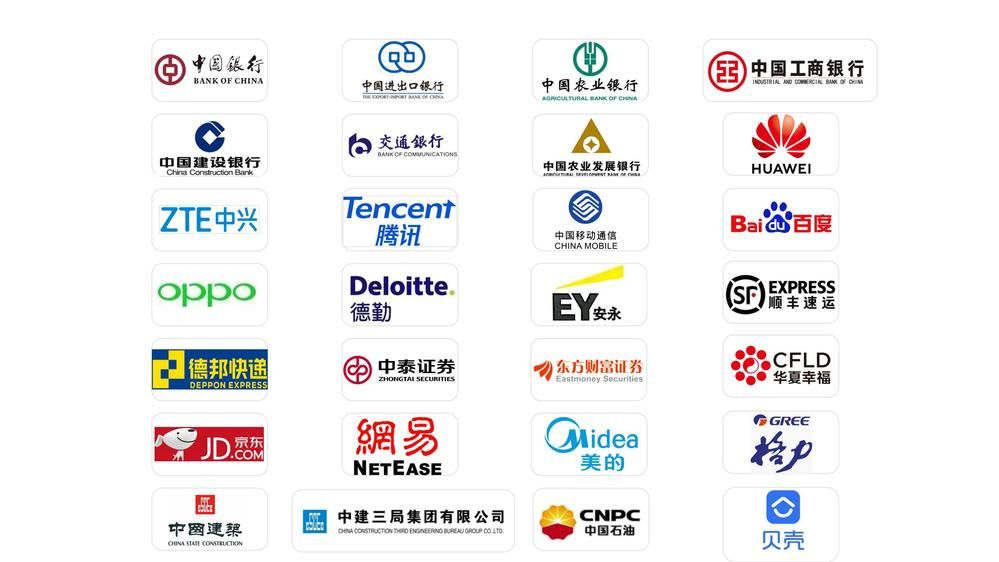
Figure 6 Key Employers of SBA Graduates